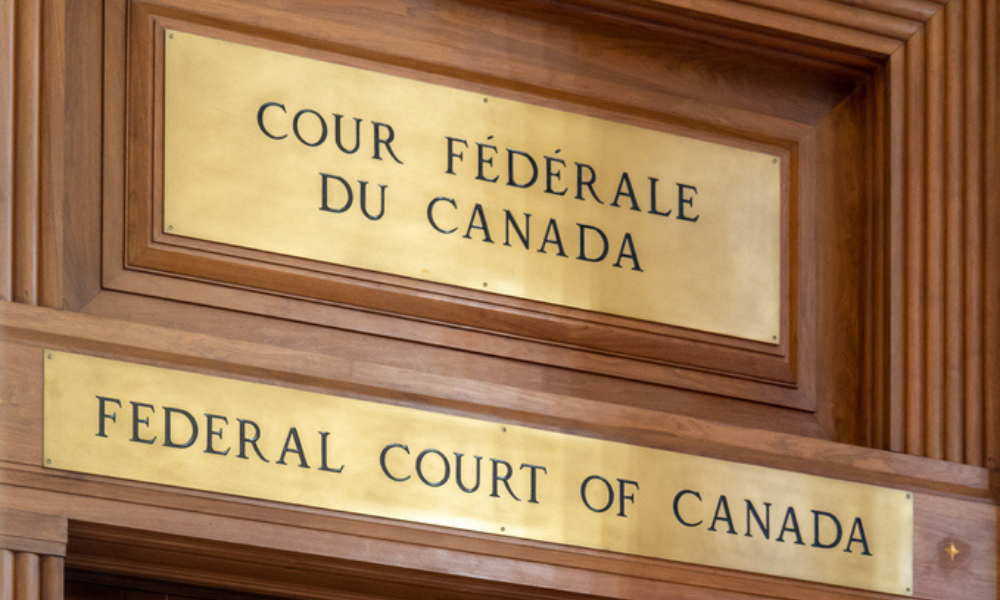
Federal Court tackles issues about eligibility for benefits and Controlled Drugs and Substances Act

This week, hearings scheduled before the Federal Court of Appeal and the Federal Court involved issues relating to bargaining agent certification, labour law, intellectual property law, excise tax, alleged unlawful taking of land, and eligibility for the Canada recovery benefit.
The court set the cases of WestJet, an Alberta Partnership v. Aircraft Mechanics Fraternal Association, A-115-23 and WestJet, an Alberta Partnership v. Aircraft Mechanics Fraternal Association, A-228-23 on Mar. 4, Monday.
These judicial review applications sought to quash the Canada Industrial Relations Board's Mar. 30, 2023 and Aug. 10, 2023 decisions made under the Canada Labour Code, 1985. These decisions certified the respondent as the bargaining agent of a bargaining unit. The applicant alleged that the decisions were unreasonable and in breach of procedural fairness.
The court scheduled Comme Corporation v. His Majesty the King, A-371-18 on Mar. 5, Tuesday. The appellant challenged the Tax Court of Canada’s refusal to grant an order extending the time to file a notice of objection or a notice of appeal relating to an allegedly arbitrary assessment made under the Excise Tax Act, 1985.
The court set Municipalité de Chelsea c. Procureur général du Canada, A-52-23 on Mar. 5, Tuesday. The appeal questioned the Federal Court’s rejection of a request for judicial review of a decision aiming to establish payments in lieu of taxes due to the Municipality of Chelsea.
The court scheduled the cases of Google LLC v. Sonos Inc., A-207-22 and Google LLC v. Sonos Inc., A-208-22 on Mar. 6, Wednesday. The appellant, which alleged infringement of a patent titled “Method and Apparatus for Adaptive Echo and Noise Control,” challenged a judgment and costs order of the Federal Court.
The court set President's Choice Bank v. His Majesty the King, A-199-22 on Mar. 6, Wednesday. The appellant questioned the Tax Court of Canada’s judgment partly allowing its appeals from certain assessments made under the Excise Tax Act.
The court scheduled Waterhen Lake First Nation v. His Majesty the King in Right of Canada, A-106-23 on Mar. 7, Thursday. The applicant alleged that a member of the Specific Claims Tribunal wrongly found that the tribunal lacked jurisdiction to hear a claim seeking compensation for the allegedly unlawful taking of a certain portion of land.
The court set Bernard Albert v. Canada Post Corporation, T-1436-22 on Mar. 4, Monday. The plaintiffs did not want to attest to their medical records about COVID-19 vaccination as an employment condition. They claimed that vaccination without informed consent and forced disclosure of their private health information about their vaccination status under the threat of administrative and/or disciplinary measures, ranging from unpaid leave to termination of employment, amounted to serious human rights and constitutional violations.
The court scheduled Sahilsingh Sunnysingh Sen v. Canada Revenue Agency, T-2264-22 on Mar. 7, Thursday. This judicial review application alleged that the Canada Revenue Agency made an incorrect assessment relating to its review of the applicant’s eligibility for the Canada recovery benefit.
The court set Drug Users Liberation Front v. The Attorney General of Canada, T-1836-22 on Mar. 7, Thursday. This judicial review application sought to quash a decision by the Controlled Substances Directorate of Health Canada’s director general. This decision denied an exemption from the Controlled Drugs and Substances Act, 1996.